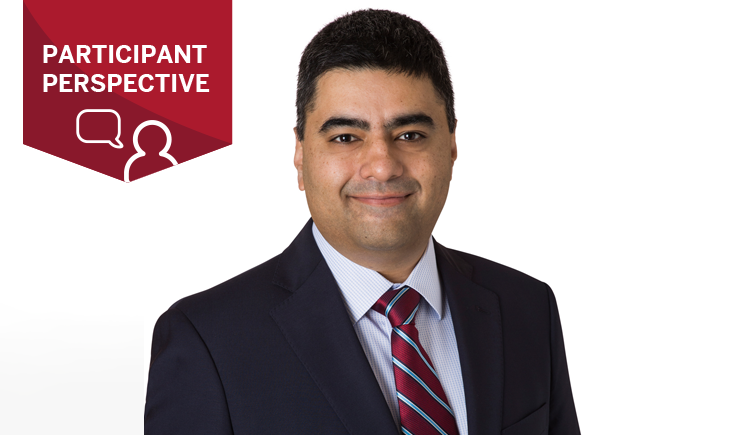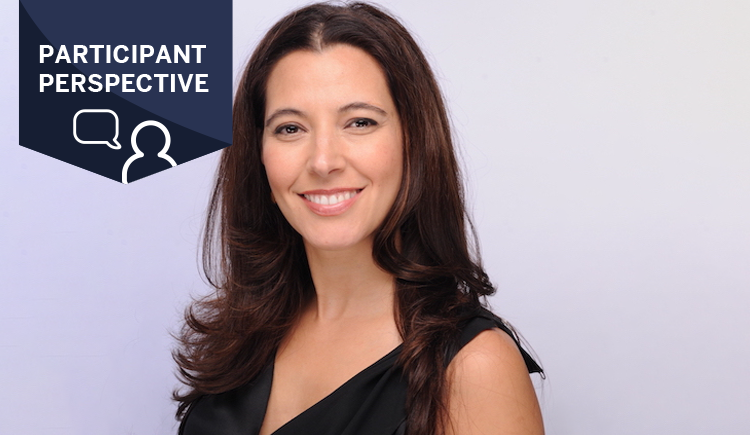
There is growing awareness that when children are taught the arts, their academic performance and outcomes improve. In the same vein, engagement of physicians and health care leaders in the arts and humanities builds their resilience and well-being and reduces their risk of burnout.
As physicians, nurses, and other health care workers in the United States face increasing pressure to do more with less, there has been growing interest in the benefits of incorporating artistic and humanistic values into medical training to build resilience and wellness, according to Phillip Pearl, MD, professor of neurology at Harvard Medical School and Boston Children’s Hospital. Dr. Pearl also serves as program director of Harvard Medical School’s Pediatrics Leadership Program, which supports health care professionals who want to succeed as leaders in pediatrics.
Exploring the Power of Arts and Humanities in Leadership Training
Harvard Medical School’s one-year certificate program combines a multimodal curriculum of three in-person workshops, webinars, online learning, and academic team and individual projects with an innovative emphasis on the artistic and humanistic side of health care. This unique learning approach helps health professionals, practitioners, faculty, administrators, and trainees with leadership aspirations to build healthy mindsets and much-needed coping skills, in order to increase their value within their organizations.
Dr. Pearl points out that when the arts and humanities are used to build resilience and wellness among physicians in this way, it helps them to be adaptively flexible, emotionally intelligent, and authentically reflective. These qualities are essential for pediatricians and professionals who want to manage teams and gain leadership responsibilities within their organizations.
Challenges in Current Pediatrics Practice
“Pediatricians, despite their highly visible qualities of child-centered and humanistic health care focus, are greatly affected by all the changes in health care today,” says Dr. Pearl. “For instance, everything we are doing is impacted by our deepening understanding of genomics, and the strides we are making in medicine are more than any individual can keep up with.”
These challenges—coupled with the complexities of an increasingly burdensome administrative and regulatory environment, the move toward capitated care systems, and ongoing global and local threats of natural disasters and infectious diseases—render life harder than ever for pediatrics providers and leaders.
Many experts believe that recent changes to the medical system are fueling the high rates of physician burnout, which is described on the Agency for Healthcare Research and Quality’s website as “a long-term stress reaction marked by emotional exhaustion, depersonalization and a lack of sense of personal accomplishment.”
A Snapshot of Physician Burnout
To get a clearer snapshot of the prevalence of this problem, the Medscape National Physician Burnout & Depression Report 2019 surveyed more than 15,000 physicians from a variety of specialties. The findings revealed that overall, 44 percent of physicians in all fields identified themselves as experiencing burnout. Specifically, 41 percent of responding pediatricians reported burnout.
Unfortunately, this trend does not seem to be improving. A previous study focusing solely on pediatrics trainees in the February 2017 issue of Pediatrics had consistent findings: Close to 40 percent of pediatrics residents said they experienced burnout, and many of them reported providing poor patient care as a result. “People go into pediatrics because they want to help kids,” Dr. Pearl says. However, he points out that the current health care environment poses more challenges than ever before.
Tapping into the Cognitive Benefits of the Arts
One of the many ways that the Pediatrics Leadership Program helps pediatricians position themselves to be more effective leaders is by exploring the benefits that engaging in the arts and humanities brings to help augment their own emotional wellness and communication skills. Faculty members who are accomplished leaders in the United States and abroad delve into ways that participants can build on these areas to help their organizations be poised for success on a broader level.
Music is one important resource that pediatricians can use. As a jazz pianist and former professor of music, as well as a symphony orchestra member in addition to his training as a neurologist, Dr. Pearl reflects that his own broad set of experiences has enabled him to gain a deeper understanding of the potential that music and the arts hold to strengthen leadership and communication skills.
“There’s all sorts of data, especially based on modern functional MRI technology, showing that music activates widespread areas of the brain bilaterally and, furthermore, brings about interesting aspects of plasticity that are important to pediatricians,” he says.
In fact, his own research has taken him into the complex medical histories of many great musicians. His work on this and related topics has appeared in a number of medical journals, including Current Neurology and Neuroscience Reports, the Journal of Child Neurology, andMusic and Medicine, for which he serves on the editorial board. The takeaways from his explorations are that music plays a role in brain health and that physicians can benefit from exploring their interests in this area.
According to Dr. Pearl, looking at how musicians interact with one another and their listeners provides valuable lessons that can be applied to improve the interactions not only between physicians and patients, but also among members of the medical teams that are so integral to clinical medicine today.
The Pediatrics Leadership Program explores music further during a program workshop at the Museum of Fine Arts in Boston. Faculty and participants will explore a unique aspect of brain processing called “synesthesia,” or the blending of the senses, and examine the role of this creative phenomenon in the arts.
Using Reflective Writing to Expand Leadership Skills
Engaging in reflective writing is another creative form that encourages physicians to move beyond a clinical mindset to see themselves and their patients on a more personal level.
Through reflective writing, pediatrics leaders can become more aware of their own emotions and learn how to process them, notes Hedy Wald, PhD, clinical professor of family medicine at Warren Alpert Medical School of Brown University.
Taking Pre-Emptive Approaches
“Humanism in medicine (patient care, teaching, leadership) requires humanizing ourselves and ‘rehumanizing’ as needed,” says Dr. Wald. Some of the pre-emptive approaches that she has shared with program participants include mindful awareness, reflective writing, enhanced reflection, and the principles of positive psychology. This resilience and well-being “professional toolkit” can help physicians expand their leadership skills and find greater purpose in their work.
For example, Dr. Wald stresses that reflective writing can help physicians learn to be better listeners and truly hear what their patients and team members are telling them. Enhanced reflection also offers physicians a way to explore their own feelings about challenging cases and put situations into clearer perspective. This can help them improve their own practice and build the skills required to lead their organizations successfully as the field continues to evolve.
Dr. Wald’s published research in journals such as Academic Medicine, Medical Teacher, and JAMA, as well as her commentary on “Medical Humanities in Medical Education and Practice,” highlights the role of enhanced reflection through reflective writing and other humanities modalities.
“We are building a community of practice and sharing narratives that can be a powerful means of cultivating resilience, well-being, and a robust professional identity,” she says. “At the same time, we are heightening self-awareness of our own resources and those we wish to develop.”
Dr. Wald also emphasizes the importance of creating resilient organizations. “Beyond the personal and professional gains that participants can make,” she adds, “we also need to look at how to create and sustain an organizational culture of resilience and well-being.”
Building Resilience and Reducing Burnout
Collectively, training pediatrics professionals in the arts and humanities is one way to strengthen the resilience of organizations, which, in turn, can reduce the high burnout rate experienced by health care providers.
Participants of the Pediatrics Leadership Program leverage their training, as well as a number of other timely topics, to accelerate their development as leaders in the field. This includes considering best practices to develop a culture focused on value, quality, and safety; learning how best to apply different leadership theories; and experimenting with ways to cultivate personal relationships that promote growth within an organization’s framework.
Program participants also learn new ways of using clinical and translational research and medical education to improve the delivery of care and ultimately achieve better patient outcomes in pediatrics medicine.
Written by Lisa D. Ellis
-
Resources
- Kane, Leslie. Medscape National Physician Burnout & Depression Report 2019. Medscape. Dec. 10, 2019. https://www.medscape.com/slideshow/2019-lifestyle-burnout-depression-6011056
- “Physician Burnout.” Agency for Healthcare Research and Quality. July 2017. https://www.ahrq.gov/professionals/clinicians-providers/ahrq-works/burnout/index.html
- Wald, Hedy, PhD, Clinical Professor of Family Medicine, Warren Alpert Medical School of Brown University.
https://vivo.brown.edu/display/hwald


